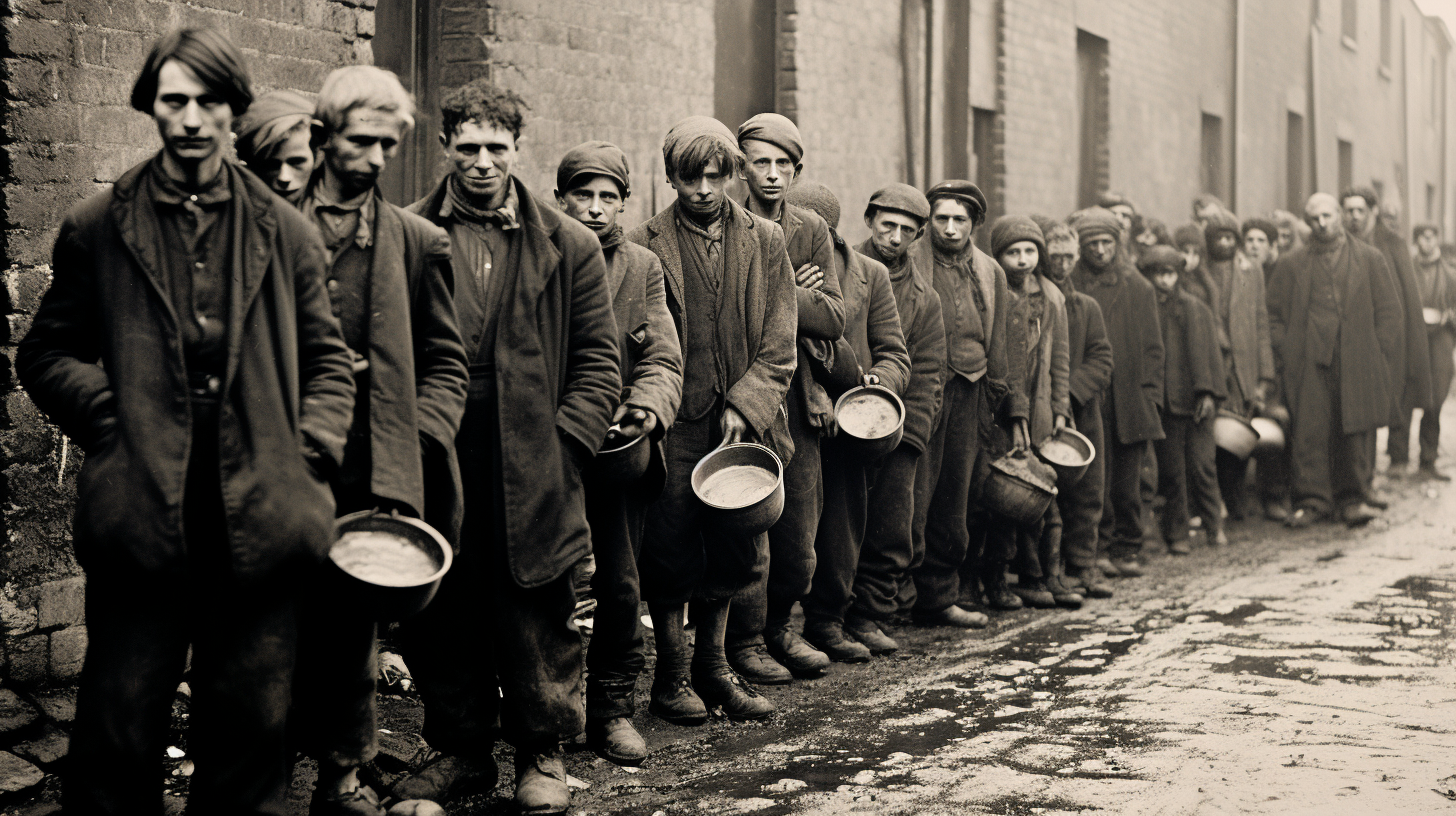In an era where bread was once equated with life itself, a dire tune whistles through our barren wastelands, a requiem for the once fertile plains that now lie fallow under the tyranny of dust and desolation. This is not the Dust Bowl of the 1930s; it is the Dustbowl Blues of the 21st century, an echo of despair resounding through the world’s emptied breadbaskets dealt by the relentless hand of climate cataclysm.
‘Once Lush Now Dust’ exposed the wounds we have inflicted upon our earth’s crust which, with neither rest nor healing, have festered into a chronic malady of sterility. The heartrending sights from North America, Eastern Europe, and Asia mirror each other with haunting precision, all singing the same somber tones of the great famine. The clumps of lifeless soil lifted by the occasional ill wind now form the solemn backdrops of our realities.
The ‘Blight of the World’s Breadbaskets’ now transitions into a famine of unprecedented scale. We see the heavy doors of grain silos swing mournfully in the toxic breeze, empty as the bellies they can no longer fill. Farmers have become forlorn spectators to their own ruin, watching as their toilsome legacy crumbles into powder finer than the flour once milled from their harvests.
Cities, once beacons of prosperity and advancement, now serve as stages for the grave theatrics of scarcity. The skein of society unwinds rapidly as hunger laces its fingers into the very fabric of civilization, pulling at threads with a voracity that rivals the hunger felt in millions of stomachs.
Food lines stretch endlessly, showcasing a dystopian diversity; individuals from every walk of life stand shoulder to shoulder, disillusioned and unified by want. The Grand Delusion of Plenty has shattered, revealing a truth so stark and unforgiving that it chills the bone more than the knowledge that, indeed, our loaves turned to dust.
With whimsy as dark as the soil beneath a hearse, some jest that the value of bread has skyrocketed beyond the wealthiest of commodities, that each crumb is now akin to a nugget of gold. Yet, there is no mirth in their eyes – only the reflection of stark, unrelenting dust devils dancing mockingly on abandoned fields.
Reports of progress in regenerative agriculture, which ‘Once Lush Now Dust’ featured with a flickering hope, are now but whispers, fragile as the parched earth. Efforts to till back life into the dead grounds seem as futile as sewing seeds upon concrete. Where there was meant to be lush abundance, only the Ghost Farms of Tomorrow remain – grim testimonies to what happens when innovation is shackled by inaction.
The voices of the forsaken rise not in pleas for pity, but for recognition and reminiscence of a time when the earth was revered, not ravaged. Now, their words float as ephemera in an arid expanse where the faintest hopes of verdure are choked by the relentless spread of desertification.
As record-high temperatures bake what remains of stability into the crust of an ever-expanding wasteland, scientists’ alarm bells ring unheard. Their proclamations of disaster, once dismissed as the hyperboles of doomsayers, are now the laments of prophets scorned one time too many.
In the clutches of this great famine, where the opulent haggle over hoarded cans and the destitute scavenge for scraps, we dance the Dustbowl Blues. While the world starves, we come to rue the moment we allowed our breads to buy into the bleak dirge of desolation. For in our neglect, we have authored a chapter of history where the only abundance left is the dust that blankets our hope in thick, suffocating layers.
Splendid fields, so lovingly sung in lullabies to our children, are now foreign in their lexicon, replaced with words like ‘famine,’ ‘hunger,’ and ‘scarcity.’ Such is the future we are writing with each moment we remain idle. It is a melody, dreary and sullen, yes, but one that plays incessantly, a reminder of what was, and a dire warning of what remains.
